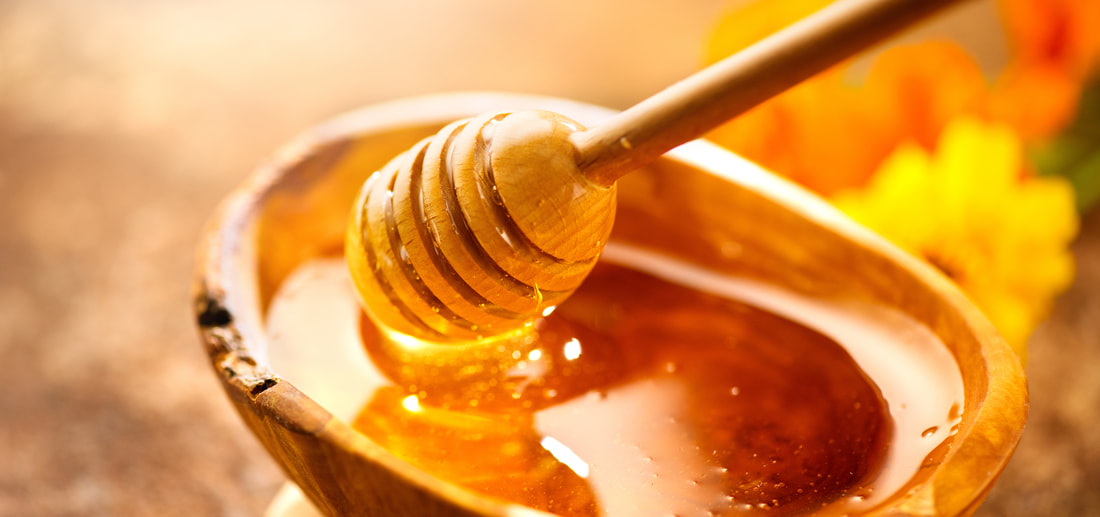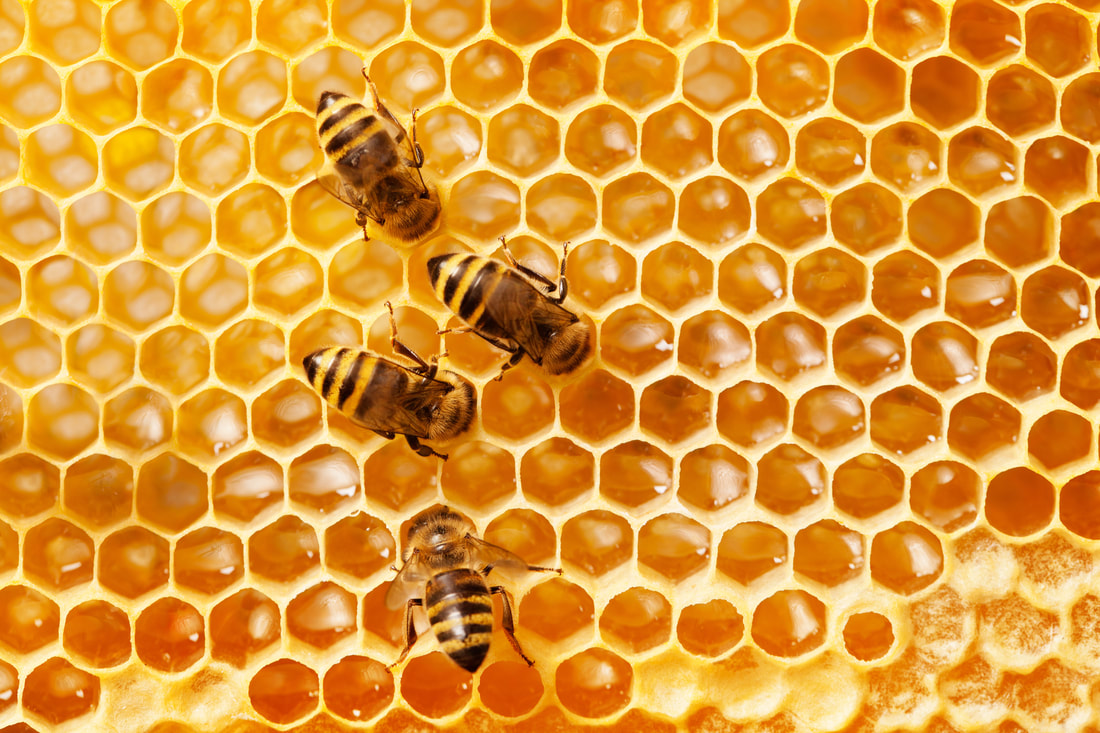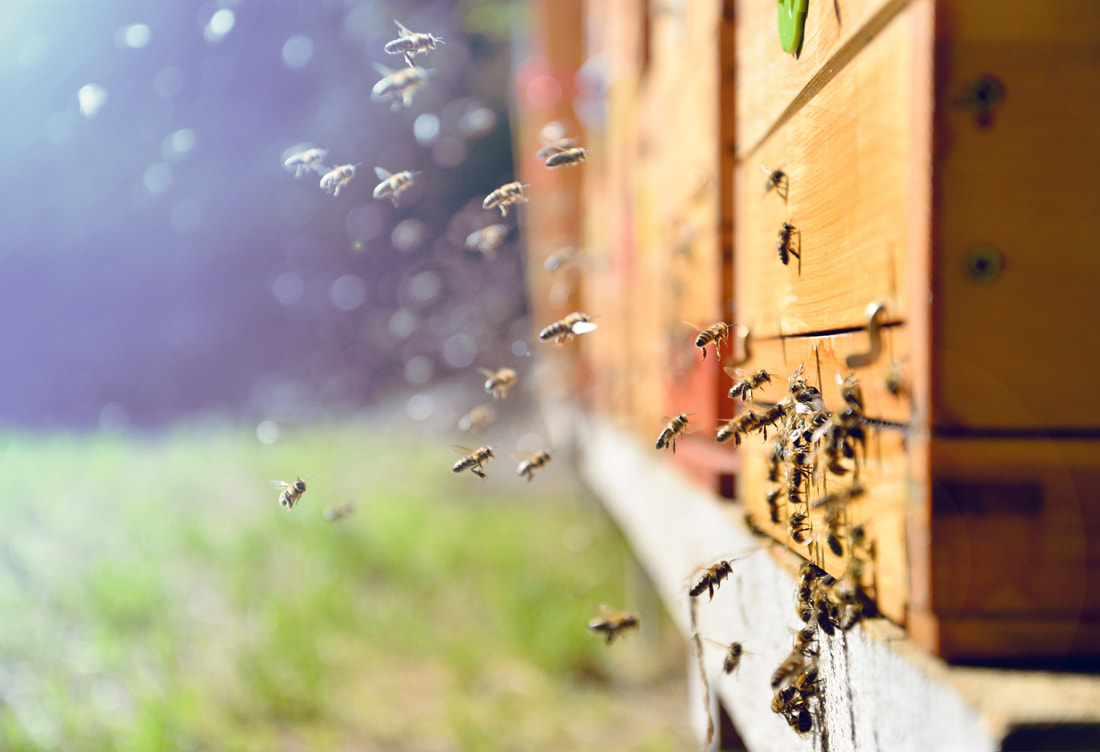|
To some, veganism seems pretty straight-forward: avoid animal and animal byproducts at all costs. Seems easy, right? Leaving things like chicken, pork, and beef off your vegan grocery list seems obvious, but what about the products that commonly cause confusion, like honey? Honey, a byproduct of the hardworking honey bee, is a topic that is hotly debated amongst vegans. If you believe that honey bees are animals and they make honey, this should automatically preclude honey from a vegan’s diet. But it gets especially complicated when people delve into the question of whether or not bees are animals, which is at the heart of this conversation. To us, it’s straight-forward. Here’s what we think about honey in the context of veganism. Can I Have Honey If I’m Vegan?At the crux of this discussion, we must answer the question, “are bees considered to be animals?” as whether or not honey is vegan will hinge on this answer. Honey bees are, without a doubt, considered to be animals, as they are insects, which exist within the invertebrate phylum in the animal kingdom. Right off the bat, this should negate any arguments that may suggest honey is suitable for a vegan to consume, considering the fact that one of the main tenets—if not the main tenet—of veganism is that vegans are to avoid all animal products and animal byproducts. This would explain how honey is not vegan. But in addition to that, especially for those who have adopted a vegan lifestyle in hopes of creating a more liveable future, consuming honey is actually detrimental to both bees and the environment. We’ll get to this point in a bit. Of course, there are some vegans who, despite the fact that they understand that honey is a byproduct of animals, believe that honey should not be excluded from their diet. Their reasoning is a simple one in that it doesn’t look at whether or not honeybees are animals or if honey is vegan, but rather, it’s because they believe veganism shouldn’t be so restrictive. Why Do Bees Make Honey?Just like humans, honey bees use honey for food. Honey bees, unlike many animals, do not hibernate throughout the winter, and instead, work through it. But the colony is greatly reduced during this time, meaning they don’t have as many bees producing honey for food. As well, nectar and pollen supplies are scarce during the colder months. So, during the warmer months, bees do their best to prepare their colony for the winter. Honey helps provide bees with energy, with it being high in carbohydrates and sugars. And, since it does not spoil, especially in the honeycomb, honey can last forever since it’s protected from bacteria and fungi. To give you an idea of the importance of honey to honey bees, bees eat an average of 120 to 200 pounds of honey in a year, and they require a minimum of 20 to 30 pounds of honey in order to make it through an average winter. Anything beyond that amount is usually produced in order to protect themselves from predators. That isn’t even the most impressive part—a bee needs to visit 2,000 flowers to produce just one teaspoon of honey! Now that we know the why, we can get to the fun part: the how. How is it possible that those fuzzy little insects make some of the most flavourful sweeteners in nature? When you see honey bees buzz around from flower to flower, they’re actually collecting nectar from the flowers. They store the nectar in one of their stomachs (also known as the crop), which is separate from the stomach that they use to digest food. In between these two stomachs is something called the proventriculus, which feeds the bee nectar and pollen, but also ensures that the nectar in the crop isn't contaminated by what’s in their digestive stomachs. Once the honey bees return to their hive, they regurgitate the nectar they’ve collected from their crop (their nectar stomach) into another honey bee’s mouth (a processor bee). That bee stores the nectar in its own honey crop and regurgitates it into another bee that’s closer to the honeycomb for storage. This process actually changes the chemical composition of the nectar because it’s mixed with an enzyme in the bees when regurgitated, and it’s what helps make the honey “shelf stable,” prolonging its life. When the honey is stored into a comb, bees fan the nectar with their wings to help evaporate any excess water. Through reducing the water content of the nectar (from 70 percent to 18.6 percent!), the honey is protected from microbes. Bees also produce wax that helps seal the honey in the combs. How is Honey Harvested From a Beehive?Humans have been harvesting from beehives for thousands of years, and one of the most popular techniques is called “smoking.” It sounds worse than it is, and smoking actually doesn’t harm the bees at all. Smoking a hive tricks bees into thinking there’s a hazardous fire nearby, which then triggers them into lockdown mode. They then fill their stomachs with honey to preserve it for the future, which makes them lethargic and easier for beekeepers to manage when they’re dealing with the hive. From there, beekeepers remove the bees from the hive frames using different approaches, including shaking the bees, fume boards, escape boards, and high-powered bee blowers. Once they’re removed from the frame, beekeepers extract the honey from the combs. Vegan Alternatives to Honey and Bee ProductsThough honey does have a distinctive flavour and scent, there are a number of vegan alternatives to honey that will help satisfy that sweet note you’re looking for. All of the alternatives below are plant-based, and many can be substituted in recipes, including baking ones. Agave nectar A great honey alternative that’s extracted from the agave plant. Agave nectar comes in different flavours and intensity, ranging from light to dark amber. Barley malt syrup Barley malt syrup is a malt-like syrup that comes from sprouted barley that’s roasted and cooked down into a syrup. It has a golden color, and its flavour is similar to blackstrap molasses. Bee Free Honee Bee Free Honee is a name brand sweetener that’s made from sugar, apples, and lemon juice. For those who miss honey from honey bees, this vegan alternative both looks and feels like honey. Blackstrap molasses Molasses is likely the one you’re most familiar with. This thick, sweet syrup comes from refining sugarcane or sugar beets into sugar. It comes in several varieties and flavors, and it’s rich in iron and calcium. Brown rice syrup Brown rice syrup, also known as rice or malt syrup, is made through exposing cooked rice to enzymes that help break down the starches in the rice and turn them into sugar. After further refinement, you get a thick, dark syrup that has notes of caramel. Coconut nectar Coconut nectar is exactly what it sounds like—necar that’s made from the reduced sap of coconut palms. The nectar has a sweet and tangy taste and, though it’s called coconut nectar, it actually doesn’t have any coconut flavour at all. Coconut nectar is high in amino acids, vitamins, and minerals, and also low on the glycemic index. Date syrup A caramel-colored sweetener made by extracting the liquid portion of cooked dates. You can also make it at home by blending boiled dates with water. Maple syrup The tried and true! Known best for accompanying pancakes, maple syrup is made from the sap of sugar maples, red maples, or black maple trees. It’s packed with vitamins and minerals, and contains up to 24 protective antioxidants. The Additional Environmental Costs of HoneyHere’s the bottom line: honey bees aren’t making honey for us, which means there’s a limited quantity of it. Because of this fact, beekeeping has been commercialized. This creates issues surrounding ethics in terms of how bees are kept and the work that is demanded from them.
Due to the incredible demand of honey, honey bees are having trouble keeping up, especially considering the fact that the population of honey bees is decreasing drastically across the globe. Yet production of honey continues to increase, and the demand is kept up thanks to adulterated honey. Adulterated honey is honey that has been manipulated, mixing local honey with imported honey in order to round out flavours and ingredients normally not found in pure honey. This means that a lot of commercially-produced honey actually isn’t 100% honey, but may contain additives like rice syrup or fructose corn syrup. The honey you get from commercial producers is not 100% honey. It’s clear that there’s a huge market in beekeeping, but it’s not where the money is, honey. The contracts between farms that make bees pollinate crops and commercial beekeeping companies is what makes commercial beekeeping such a lucrative industry; naturally extracted honey, surprisingly, isn’t the moneymaker. Much of the food that we eat is grown thanks to the process of pollination by insects like bees. In order for bees to pollinate crops, they need to be transported year-round, which causes stress to bees that can ultimately kill them. Moving hives may also increase the risk of disease for the bees. Another reason for the death of billions of bees is because of the chemical sprays that are used on the crops they pollinate. The immune systems of some bees are weakened because of this, and the chemicals may also disorient the bees so that they aren’t able to return to their hives in time. Not only is beekeeping bad for the bees, but it’s also not so great for the environment. The colonies that are moved from place to place are detrimental to the environment because they may bring diseases to the flora that are native to the area. The transportation of these hives also require a number of resources, all at the expense of the environment. Clearly, there is a price to consuming honey—especially commercially produced honey. At the end of the day, it is your choice whether or not to consume honey, but to succinctly answer the question, “Is honey vegan,” our answer is no. If you do choose to consume honey, we urge you to support local producers. With a better understanding of how honey isn’t vegan, will you still consume honey? Let us know in the comments below!
1 Comment
11/29/2023 08:27:53 pm
What are the environmental and ethical impacts of honey production on bee colonies?
Reply
Leave a Reply. |
Archives
May 2022
Categories |
Services
|
Questions? Email us at [email protected]
|
Copyright © 2020 | Planted Meals All Rights Reserved | Powered by Actualize8





 RSS Feed
RSS Feed